Which of the following will not change the concentration of ammonia in the equilibrium
N2(g)+3H2(g)⇔2NH3(g),ΔH=−xkJ
increase of temperature
increase of volume
decrease of volume
addition of catalyst
The correct Answer is:D
Effect of catalyst is only to alter the speed of the reaction, it does not effect the equilibrium constant and concentration of reactant or product.
Topper's Solved these Questions
- BOOK - CENGAGE CHEMISTRYCHAPTER - CHEMICAL EQUILIBRIUMEXERCISE - Exercises (Assertion-Reasoning)15videos
CHEMICAL EQUILIBRIUM
- BOOK - CENGAGE CHEMISTRYCHAPTER - CHEMICAL EQUILIBRIUMEXERCISE - Exercises (Integer)7videos
CHEMICAL EQUILIBRIUM
- BOOK - CENGAGE CHEMISTRYCHAPTER - CHEMICAL EQUILIBRIUMEXERCISE - Exercises (Multiple Correct)26videos
CHEMICAL EQUILIBRIUM
- BOOK - CENGAGE CHEMISTRYCHAPTER - CHEMICAL BONDING AND MOLECULAR STRUCTUREEXERCISE - Archives Subjective15videos
CHEMICAL BONDING AND MOLECULAR STRUCTURE
- BOOK - CENGAGE CHEMISTRYCHAPTER - CLASSIFICATION AND NOMENCLATURE OF ORGANIC COMPOUNDSEXERCISE - Analytical and Descriptive Type3videos
CLASSIFICATION AND NOMENCLATURE OF ORGANIC COMPOUNDS
Similar Questions
Knowledge Check
- Question 1 - Select One
For the reaction
N2(g)+3H2(g)⇔2NH3(g),ΔH=?AΔE+2RTBΔE−2RTCΔE+RTDΔE−RT - Question 2 - Select One
The % yield of ammonia as a function of time in the reaction N2(g)+3H2(g)⇔2NH3(g),(g)ΔH<0 at (P,T1) is given below
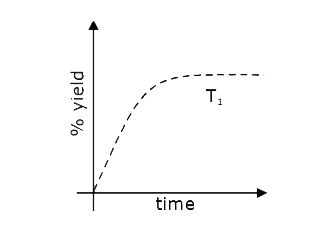 A
A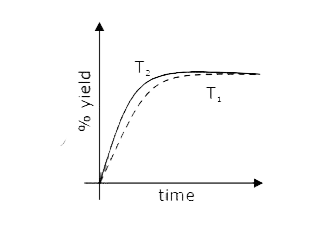 B
B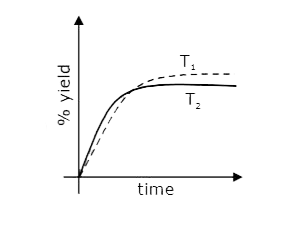 C
C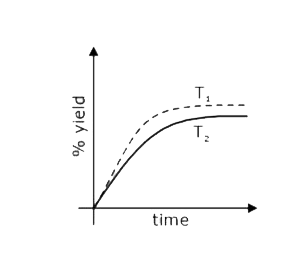 D
D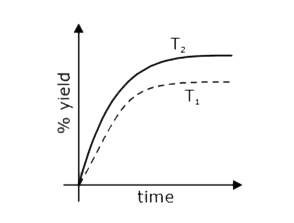
- Question 3 - Select One
Which of the following is correct for the reaction?
N2(g)+3H2(g)⇔2NH3(g)AKp=KcBKp<KcCKp>KcDPressure is required to predict the correlation
Which of the following is correct for the reaction?
N2(g)+3H2(g)⇔2NH3(g)View SolutionWhich of the following factors favour the reaction:
N2(g)+3H2(g)⇔2NH3(g)ΔH=-93.6 kJView SolutionIn which of the following reactions, the formation of product is favoured by decrease in temperature ?
(1)N2(g)+O2(g)⇔2NO(g),ΔH∘=181
(2)2CO2(g)⇔2CO(g)+O2(g),ΔH∘=566
(3)H2(g)+I2⇔2HI(g),ΔH∘=−9.4
(4)H2(g)+F2(g)⇔2HF(g),ΔH∘=−541View SolutionThe Habar's process of production of ammonia involves the equilibrium:
N2(g)+3H2(g)⇔2NH2(g)
Assuming ΔH∘ and ΔS∘ for the reaction do not change with temperature, which of the statements is true?
(ΔH∘=−95kJandΔS∘=−198JK−1)View SolutionWhich of the following is correct for the reaction?
N2(g)+3H2(g)⇔2NH3(g)View Solution

